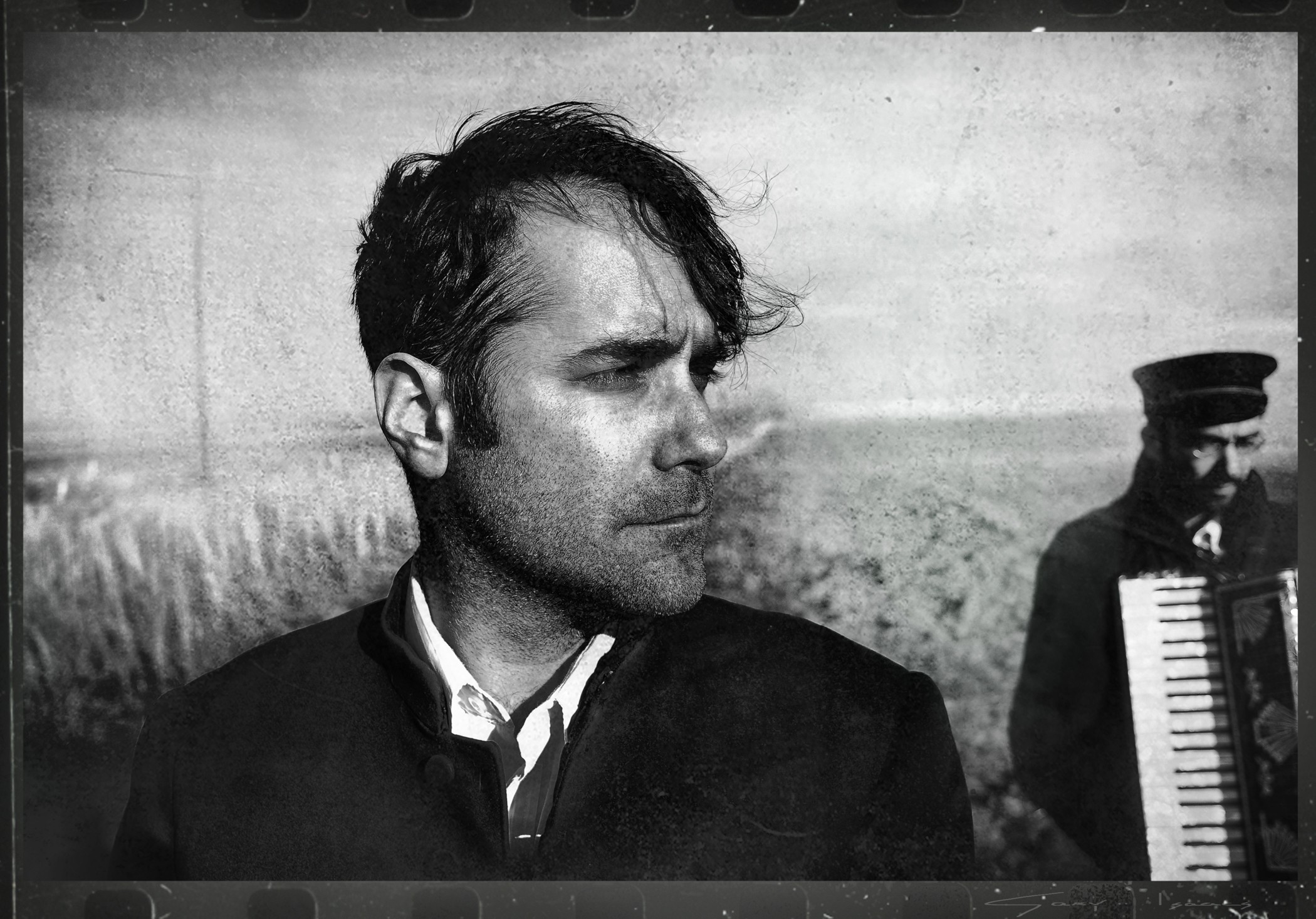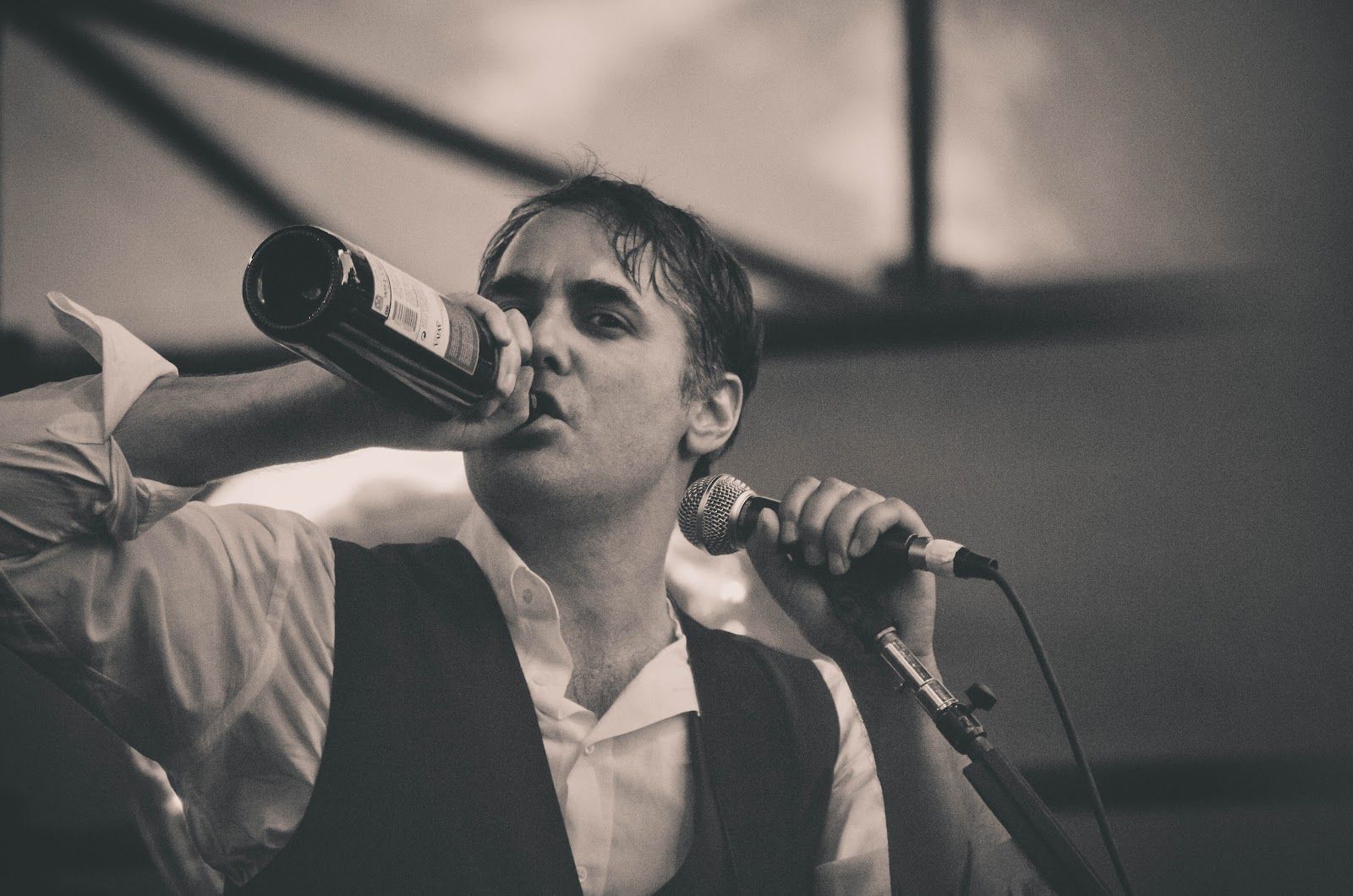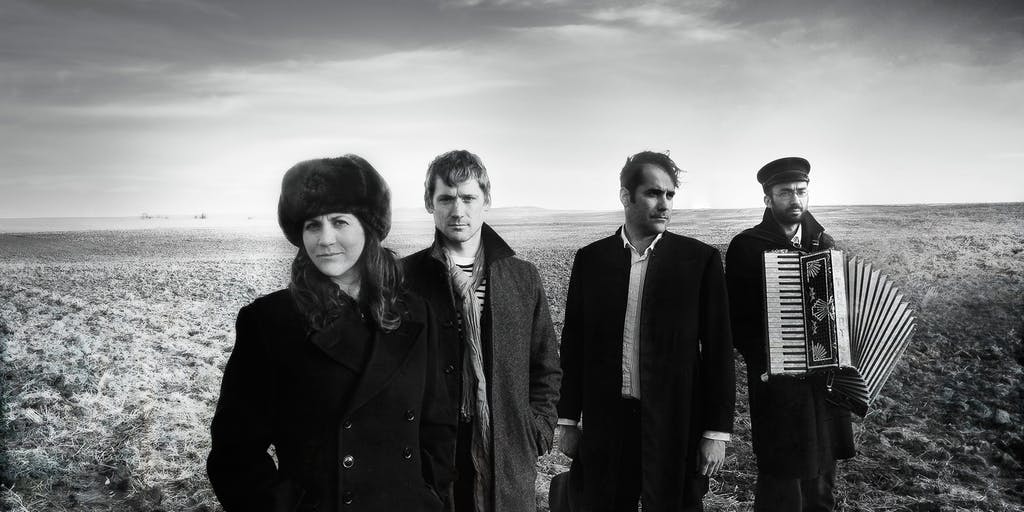
DeVotchka are hot off the heels of finishing their newest album This Night Falls Forever and touring. This interview with the band’s leader Nick Urata covers everything from film scores to World War 2.
RC: At this stage in your career, you and the band have had several successful albums, created or have contributed to several fantastic film soundtracks, and have gained a high levels of regard within both indie and mainstream circles. Despite all of this though, you haven’t been put under the magnifying glass and can still live a more or less normal life doing what you love. In short, have you reached the happy medium of fame? And if so, is it as fulfilling as you hoped it would be?
NU: Yes, I feel lucky in this regard. We’ve come to realize that the actual work, is the only thing that is fulfilling. The thrill of fanning a little spark of an idea into a giant fire is what really gets you out of bed. When you’re practicing in your room as a kid you want nothing more than to be famous, but the reality is quite complicated. In my case, I learned how to write from a “man on the street” perspective, I have to stay connected on this level or I lose my way. As long as the bartender knows me, I’m good.
RC: Listening to the new album and delving back into your catalog, a strong sense of narrative emerges from your writing and execution. Have you ever considered writing a musical? If so, do you have designs for it to be a larger scale performance or would you prefer to keep it within the confines of a concept album?
NU: Yes, we are working on something like this. When you are writing songs you have to constantly whittle down your ideas like a journalist writing a lead. To throw off these chains and have some space to elaborate on ideas is very liberating at this point. If anybody want to sit through this remains uncertain. We have always tried to be with the audience and not be self indulgent….
RC: Since coming to mainstream attention as part of the soundtrack for Little Miss Sunshine, it’s become something of a new normal that artists break out through appearing on soundtracks and commercials. Are you proud of being at the forefront of this shift in the way that artists gain exposure or do you have reservations about how far this idea has been taken?
NU: We were very lucky to get our foot in the door, I should say the back door. We were releasing our own stuff and touring all over without any support and nobody noticed. The same songs got released on the soundtrack and we got a grammy nomination. In today’s overstimulated landscape, up and coming artist don’t have the luxury of waiting for the record companies to come knocking.
RC: On the subject of gigs that may or may not be milestones in how music is consumed and disseminated, how does your recent show at the Hollywood Bowl performing the soundtrack to Willy Wonka and the Chocolate Factory (alongside a cast including John Stamos, Finn Wolfhard, and Elle King) fit into the band’s development? Was it one of those “for the hell of it” concerts or is there an element to the film and corresponding performance that connects more explicitly to the themes and mood expressed in your other albums that wouldn’t be seen as easily as when you performed a similar concert accompanying Dziga Vertov’s silent film Man With a Movie Camera?
NU: We’ve always been film freaks. I always wanted to score a film but had no idea how, so I let my love for film scores infiltrate and guide our sound. This and our unorthodox use of classical instruments have always attracted unique collaborative offers. We always jump at the chance to try something new, especially when it involves film. Willy Wonka is burned into all of our collective conscience and the songs are sublime. The thought of being that close to it was irresistible to us, and I got to do a Theremin solo at the Hollywood Bowl! I had to watch the film another 400 times for this show and Gene Wilder’s soulful presence never ceases to amaze, what a gem.
RC: With this in mind, is there a source of inspiration for your music that most fans would be surprised to find is an influence on your work? You’re not a closet Kanye fan, are you?
NU: After trying to produce recordings for so many years, our love for all kinds of music has truly expanded. There are so many ways to fail at making a record, I find myself enamored with anybody who can do it right.
RC: With all the uncertainty creeping into every facet of our lives today, what’s something that gives you hope these days in regards to the state of music? Is there more that artists should be doing to reassure people or that fans should be doing to stay engaged with acts with more an their mind than selling albums?
NU: The younger generation coming up gives me a lot of hope. The kids are learning music at a rate we couldn’t dream of. Technology has leveled the playing field and allows for more talented souls to be heard. An artist just needs a little love and encouragement and they can be the agents of change for the world.
RC: Finally, given the chance to witness any event in history no matter how big or small, but not changing anything, what would you choose to witness and why?
NU: I think we probably over romanticize the past but it sure is nice to go there. That being said, I would have to go with World War 2 or more specifically the end of it, I couldn’t think of more optimistic moment in time. Of course I’m brushing past the 50 million people who were lost, but when you overcome those odds and you see a clear example of good triumphing over evil it changes the course of human history. Look at all the advances that came from it….and of course the suits and cars were super cool.
DeVotchka will be playing at The Fonda Theatre on September 29th. You can buy tickets here.





